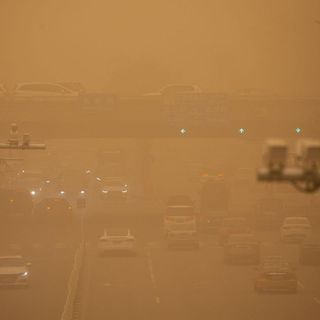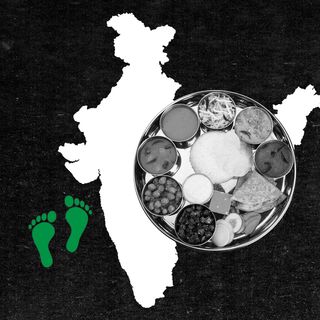India’s Environment Ministry has admitted to underutilizing funds allocated to reduce particulate matter concentration in the environment in a bid to curb air pollution, according to a media report.
The Ministry of Science and Technology, Environment, Forests, and Climate was allotted Rs. 460 crore under the head ‘Control of Pollution’ — primarily to fund the National Clean Air Programme, which seeks to achieve a 20-30% reduction in air pollution by 2024. However, of the Rs. 460 crore allocated, the Ministry had utilized only about Rs. 190 crore, around 40% of the total allocation, till January end this year.
In response to this, a parliamentary panel has reportedly recommended the Ministry come up with ‘innovative’ plans for using idle funds to counter and mitigate air pollution. It has suggested that it build requisite infrastructure for electric vehicles, as well as set up bio-degraders to address stubble burning. Stubble burning, or burning of crops, is cited as one of the primary causes of air pollution in the national capital every winter.
Related on The Swaddle:
India’s Pollution Regulators Are Ineffective Due to a Lack of Expertise, Resources: Report
Tackling air pollution will also help in addressing a worsening climate crisis.A study by the International Energy Agency (IEA) indicated that carbon-emissions are already rebounding to pre‑Covid19 levels globally, despite a significant dip during the pandemic. At this juncture, it is imperative to control emissions, especially in India, which is the world’s third-largest emitter of carbon dioxide, a major air pollutant. In 2019, 22 of the world’s 30 most polluted cities were in India.
In fact, not curbing air pollution can lead to a wide range of health complications. Research has linked air pollution to miscarriages, anemia, and even shortened lifespans — with India reporting the maximum infant deaths due to air pollution in the world in 2019.
Moreover, we haven’t completely emerged from the global coronavirus pandemic yet, and previous studies have linked poor air quality to higher Covid19 mortality rates. And, “if governments don’t move quickly with the right energy policies, this could put at risk the world’s historic opportunity to make 2019 the definitive peak in global emissions,” Fatih Birol, executive director of the IEA, told the media earlier this month.




